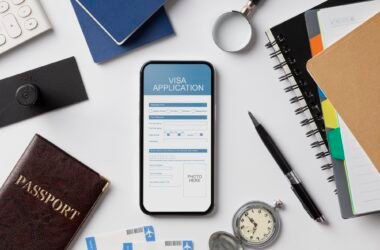As a member of the European Union, Malta enforces specific immigration policies for individuals seeking employment. For third-country nationals (those from countries outside the EU, EEA, and Switzerland), obtaining legal work in Malta requires a valid work permit.
This article covers the types of work permits for third-country nationals, eligibility criteria, application processes, and associated costs.
Who Are Third-Country Nationals?
“Third-country nationals” refers to individuals from non-EU, EEA, and non-Swiss countries. Malta’s immigration policies require these individuals to secure specific work permits to live and work legally in the country.
Types of Work Permits for Third-Country Nationals
Malta offers different work permits to meet various employment needs for non-EU nationals:
- Employment License: For specific employment cases or short-term roles, requiring employer sponsorship.
- Single Permit: Authorises work and residence in Malta for most employment needs.
- Key Employee Initiative (KEI): A fast-track permit for highly skilled professionals in sectors facing labour shortages.
Important Notice for Tourist Visa Holders
Individuals entering Malta on a tourist visa are not permitted to apply for a work permit while in the country. This means that if you arrive in Malta with a tourist visa, you can't transition to employment status or apply for a work permit during your stay. To legally work in Malta, TCNs must obtain a work permit prior to arrival. This process involves securing a job offer from a Maltese employer, who must then apply for the necessary Single Permit on your behalf. Once approved, you can enter Malta with the appropriate work visa or permit. Attempting to apply for a work permit after entering Malta on a tourist visa is not allowed and can lead to complications, including the denial of future visa applications and other legal issues.
Required Forms and Documents for Single Permit

For a Single Permit application, the following documents are necessary:
- Signed employment contract (minimum 12 months);
- Private health insurance covering 12 months;
- Completed application form (provided by the employer via the Single Permit Online Portal)
- CV and references (demonstrating at least three years of experience or MQRIC qualification recognition)
- Notarized rental agreement, Housing Authority Approval, and Lease Attestation Form
- Copy of passport
- Health screening certificate (depending on employment roll, some positions are exempt)
- Job description, Declaration of Suitability, and Privacy Policy
- Skills Pass for those applying for hospitality sector.
Important: The Single Permit application must be submitted by the employer on behalf of the employee through the Identità Malta Single Permit Online Portal.
Make sure to request the latest checklist from Identità Malta at the time of your application, as policies may be subject to change.
Work Permits for Medical Workers
Healthcare professionals, such as doctors, nurses, and caregivers, must follow the same work permit application process. However, some roles may require registration with a Maltese professional body, such as the Malta Medical Council, before the permit can be issued.
Cost of application: €150
Application Process
The first step in the Single Permit application process is for the employer to submit the application online through the Identità Malta Single Permit Portal on behalf of the employee.
Once the application is submitted, the process continues as follows:
New Applications: Applicants receive an Approval in Principle letter by email. For applicants who are still abroad, the letter includes instructions on applying for an entry visa and booking a biometric appointment. At the biometric appointment, a Temporary Authorisation to Work is issued. After this, applicants must await the collection letter, which will be sent to their registered home address, to collect their residency card.
Renewal and Change of Employer: Applicants receive an invitation to schedule biometrics, followed by an interim receipt for temporary work authorisation. After completing all steps, a collection letter is sent to the applicant’s home address.
Processing Time
The processing time depends on the accuracy of submitted documents and timely biometric capture, typically taking 4–6 weeks. Applicants and employers are encouraged to ensure that all documentation is accurate to avoid delays.
Updated Fees (Effective 1 August 2025)
From 1 August 2025, Malta introduced significant changes to its work permit fees for third-country nationals.
The most notable adjustments include a substantial increase in the first-time application cost and change of employer fees, alongside a reduced rate for annual renewals.
Healthcare, elderly care, and other social care roles benefit from a flat, lower fee to encourage recruitment in these essential sectors.
| Application Type | Fee (€) |
|---|---|
| First-time Single Permit | 600 |
| Renewal (per year) | 150 |
| Change of Employer | 600 |
| Change of Designation or Residence Address | 300 |
| Health/Elderly/Care Sector Roles (all types) | 150 |
Note: Fees are non-refundable.
Changing Employers in Malta
To change employers in Malta, third-country nationals must apply for a new work permit. The To change employers, third-country nationals (TCNs) must:
- Secure a new job offer, complete with an official employment contract from the new employer.
- Submit a new Single Permit application within the grace-period window following termination of prior employment.
Grace Period Details
- Initial Grace Period – 30 days from termination to submit a new application and remain legally in Malta.
- Possible Extension – Up to 60 days if you can prove financial self-sufficiency to Identità Malta.
Documentation Required
- Termination letter from previous employer
- Updated employment contract from the new employer
- Detailed job description
- Any additional forms required by Identità Malta, including Skills Pass for hospitality sector applicants (if applicable)
Fee: €600 (non-refundable) for change-of-employer applications.
Renewal of Work Permits
Work permits in Malta are generally valid for one year but may be renewed for up to two or three years for Key Employees and Highly Skilled Workers. Under the new rules effective 1 August 2025, renewal applications can be submitted up to three months before the current permit expires and must be lodged before the expiry date. Applying early is strongly advised to avoid gaps in authorisation. The renewal fee is €150 if there has been no change in job designation or residential address since the previous application; if either has changed, the fee is €300. All renewals require proof of continued employment, a valid notarized rental agreement with Housing Authority attestation, and any additional documents requested by Identità Malta.
Recap
With the August 2025 changes, work permit applications in Malta require earlier planning and higher costs for certain processes. Submit renewals up to three months in advance, secure all rental documentation in order, and be mindful of the 30-day limit (or 60 days if self-sufficient) when changing employers. Acting early and keeping paperwork complete can save you both time and money.
For further assistance with Malta’s work permit process or relocation guidance, Expatax Malta offers expert support to ensure compliance and ease in your transition to Malta.
Further Reads
Related: Family Reunification for Third-Country Nationals in Malta







